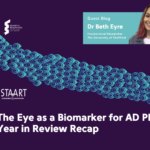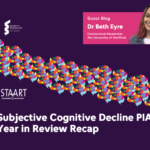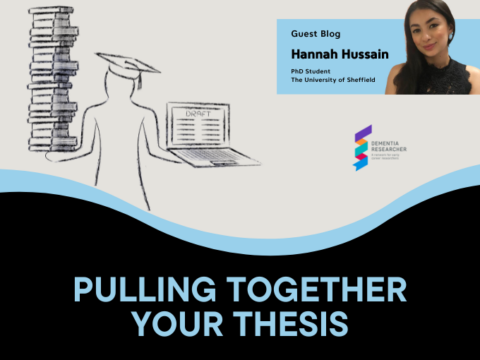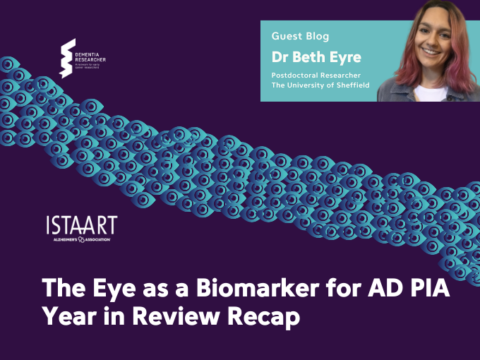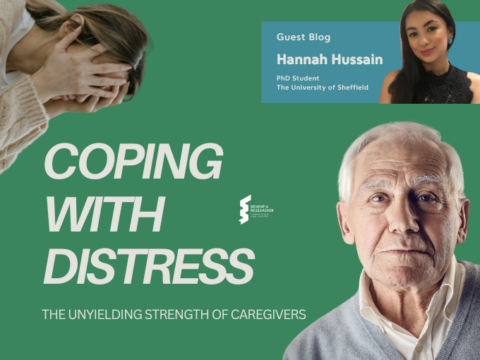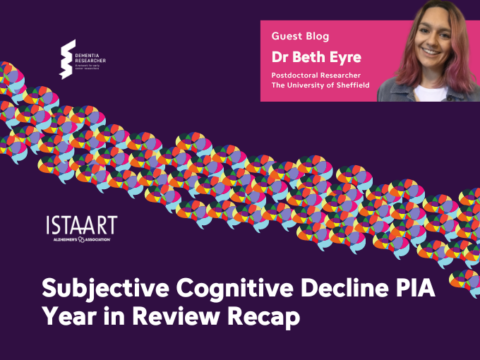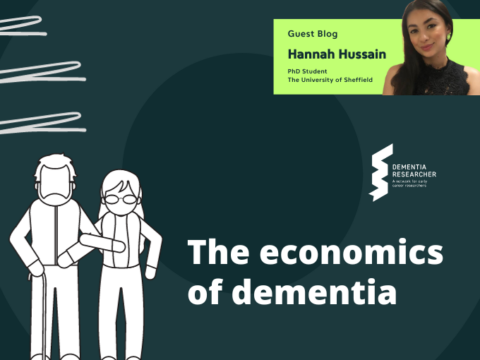Name:
Beth Eyre
Job title:
PhD Student
Place of work / study:
The University of Sheffield
Area of Research:
Neurovascular and cognitive function in preclinical models of Alzheimer’s disease and in a mixed model of Alzheimer’s disease and atherosclerosis.
How is your work funded?
Battelle – Dr Jeff Wadsworth PhD Studentship
Tell us about your career path to becoming an early career researcher.
I did my undergraduate degree in Psychology at the University of Leeds where I got to study abroad in Australia for a year. By the end of my degree I didn’t really know what I wanted to do – psychology is such a broad subject so my interests at this point we quite varied! All I knew is that I loved studying and learning about how the brain works. I took a year out, worked as a boating instructor at a camp in America (would definitely recommend) and then as a teaching assistant, working with young people with special educational needs. I loved the job but I really missed studying and in particular learning about the brain. I decided it was time to go back to university. I found an amazing masters at the University of Sheffield (cognitive neuroscience and human neuroimaging). During my masters I got to complete a brain dissection module, getting to hold a human brain in my hands really solidified that I wanted a job where I got to work and research the brain. I knew that I wanted to stay in academia, so I started applying for PhDs, specifically ones which involved neurodegeneration. The first couple I applied for I didn’t make it to interview, but an amazing position came up at Sheffield investigating neurovascular function in Alzheimer’s disease. I applied, got an interview and was awarded the position. Two years later I am here, a second year PhD student, buried in experiments – but I wouldn’t have it any other way.
What does your research focus on?
My research investigates cognitive and neurovascular function in pre-clinical models of Alzheimer’s disease and in a mixed model of Alzheimer’s and atherosclerosis. In the brain when a neuron fires its closely followed by a matched increased in blood flow to that same brain region – we call this relationship neurovascular coupling. If neurovascular coupling is impaired neurons don’t get the energy they need – which can be damaging to brain health. Neurovascular coupling is reportedly impaired in Alzheimer’s disease. So, the first part of my project is to investigate how amyloid plaques in these models impact neurovascular coupling. The second part of my project aims to look at how vascular changes can impact Alzheimer’s disease. Increasing evidence suggests that vascular dysfunction occurs early in Alzheimer’s and may indeed lead to neurodegeneration, through damage to the blood brain barrier and hypoperfusion. As many individuals with Alzheimer’s disease also possess vascular risk factors and/or vascular disorders it’s important to gain an understanding of how neurovascular function may be altered by the presence of both Alzheimer’s and cardiovascular disease – the second half of my project will investigate this.
Do you have any advice for someone looking to embark on a career in dementia research?
Don’t let rejections hold you back. PhDs can be competitive, especially well funded ones, but that does not mean that you don’t have as much chance as someone else at getting on to one. Before I got my position, If I’m honest, at times I was really doubtful that I would actually get a position – but here I am. From my own experience I’ve found that attitude is everything, your attitude to successes, your attitude to failure. A large part of your PhD training does involve you failing at things and that is totally okay – what’s important is how you respond to that failure and pick yourself back up.
What are the best bits about being an ECR?
One thing that I love about being an ECR is that I get to learn something new each day – whether that be a new scientific technique or some new knowledge from a new paper. It’s really exciting getting to design experiments, conduct them and then analyse the data. I also really like working in a lab – during my undergrad and MSc training I never got the chance to do this.
What do you see as the main challenges?
As academic positions rely on grant funding it can mean that positions aren’t secure – for me this is what I find to be the main challenge of academia. I see myself staying in the field and I’ll obviously work really hard to make that happen but in the back of my mind I do sometimes worry that there won’t be a position for me when I finish my PhD.
What do you write about?
I write about my experience as a PhD student, my research and how I try and keep a work life balance.
Tell us a fun fact about yourself:
I once got stranded on an island in Fiji.
Why did you choose to work in dementia?
Dementia affects so many individuals and sadly is still under researched and underfunded. Unfortunately, I’ve seen first-hand how dementia can completely change people you love and how it not only affects them but all those around them – I wanted to research something I was passionate about – the brain and helping people.

 Print This Post
Print This Post
